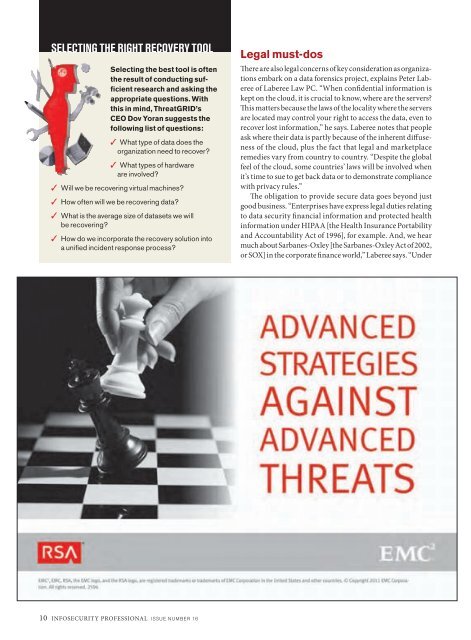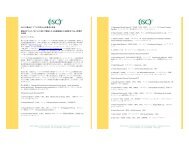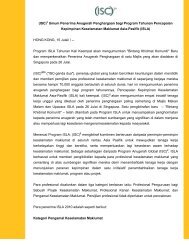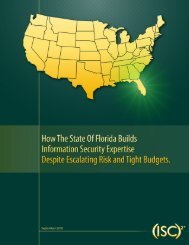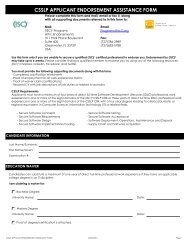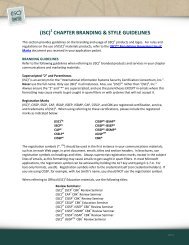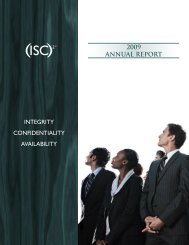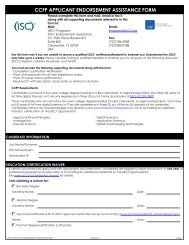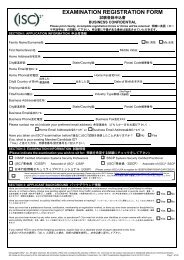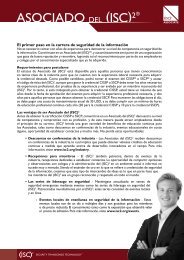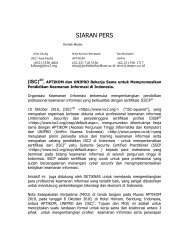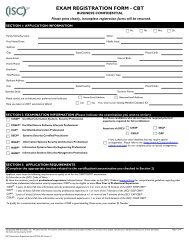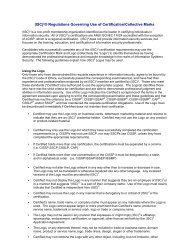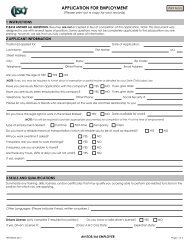The 2011 (ISC)2 Security Congress
The 2011 (ISC)2 Security Congress
The 2011 (ISC)2 Security Congress
You also want an ePaper? Increase the reach of your titles
YUMPU automatically turns print PDFs into web optimized ePapers that Google loves.
Selecting the Right RecoveRy tool<br />
Selecting the best tool is often<br />
the result of conducting sufficient<br />
research and asking the<br />
appropriate questions. With<br />
this in mind, ThreatGRID’s<br />
CEO Dov Yoran suggests the<br />
following list of questions:<br />
3 What type of data does the<br />
organization need to recover?<br />
3 What types of hardware<br />
are involved?<br />
3 Will we be recovering virtual machines?<br />
3 How often will we be recovering data?<br />
3 What is the average size of datasets we will<br />
be recovering?<br />
3 How do we incorporate the recovery solution into<br />
a unified incident response process?<br />
10 InfoSecurIty ProfeSSIonal ISSUE NUMBER 16<br />
Legal must-dos<br />
<strong>The</strong>re are also legal concerns of key consideration as organizations<br />
embark on a data forensics project, explains Peter laberee<br />
of laberee law Pc. “When confidential information is<br />
kept on the cloud, it is crucial to know, where are the servers?<br />
This matters because the laws of the locality where the servers<br />
are located may control your right to access the data, even to<br />
recover lost information,” he says. laberee notes that people<br />
ask where their data is partly because of the inherent diffuseness<br />
of the cloud, plus the fact that legal and marketplace<br />
remedies vary from country to country. “Despite the global<br />
feel of the cloud, some countries’ laws will be involved when<br />
it’s time to sue to get back data or to demonstrate compliance<br />
with privacy rules.”<br />
<strong>The</strong> obligation to provide secure data goes beyond just<br />
good business. “enterprises have express legal duties relating<br />
to data security financial information and protected health<br />
information under HIPaa [the Health Insurance Portability<br />
and accountability act of 1996], for example. and, we hear<br />
much about Sarbanes-oxley [the Sarbanes-oxley act of 2002,<br />
or SoX] in the corporate finance world,” laberee says. “under


